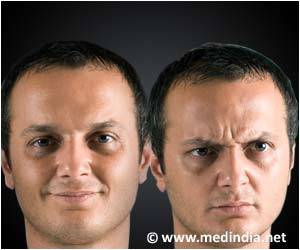Bipolar disorder patients who practice yoga believe their yoga practice has significant mental health benefits, says study published in Journal of Psychiatric Practice.

Survey Suggests Benefits of Yoga for Bipolar Disorder The researchers recruited 109 individuals who identified themselves as having bipolar disorder and as being yoga practitioners. Participants were asked to complete an online survey concerning their yoga practice and its impact on their mood disorder symptoms. Of 86 individuals with usable responses, 70 had positive results on a screening questionnaire for manic (or less-severe hypomanic) symptoms.
Participants reported practicing yoga for an average of six years; they attended a yoga class twice a week and practicing yoga at home three times per week, on average. Two-thirds of respondents said they practiced yoga for exercise/to improve flexibility and to reduce stress and anxiety.
Most participants believed that yoga had benefits for their mental health. Two-thirds said that yoga positively affected their depressive, manic, or hypomanic symptoms at least some of the time.
They also reported positive emotional effects of yoga, such as reduced anxiety and worry; positive cognitive effects, especially in terms of increased mindfulness; and positive physical effects, such as weight loss, increased energy, and improved sleep. Fifteen respondents said that yoga had been "significantly life-changing."
Some Report Adverse Effects of Yoga on Bipolar Symptoms But about one-fourth of respondents reported some type of negative effects related to yoga. The most common negative effects were physical pain or injury. In addition, nine percent of respondents reported that yoga had negatively affected their bipolar disorder symptoms at some time.
Advertisement
Yoga is an ancient Indian system of philosophy and practice. Over the course of a year, approximately five percent of U.S. adults in the United States practice yoga. Most practice hatha yoga, which involves training the body with the ultimate goal of physical and emotional self-transformation.
Advertisement
The next step is to undertake a pilot study of yoga as an adjunctive intervention for bipolar disorder. In the meantime, Dr Uebelacker and colleagues add, "We hope that patients (and their clinicians) may use the information we collected to decide whether to try community yoga for themselves, and if so, what potential risks to watch for."
Source-Eurekalert















